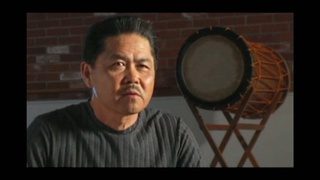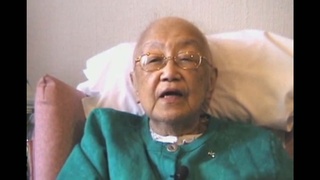Interviews
Going to Brazil to escape debt (Japanese)
(Japanese) I graduated engineering school. My father owned a methane factory—he started a company that makes a special kind of clay that takes the place of charcoal, and I helped out there for about a year. But the economy wasn’t doing so well, and business wasn’t very good… We had to face the debt collector every day. When it got to the point where just seeing the collector made us feel sick, we knew there was nothing we could do here [in Japan]. Somehow, we had to move abroad. Just then, the immigration partnership between Brazil and Japan began, and we were able to be included in the migration and came to Brazil.
Date:
Location: Brazil
Contributed by: Caminho da memória - 遥かなるみちのり. São Paulo, Brazil: Comissão de Elaboração da História dos 80 Anos de Imigração Japonesa no Brasil, 1998. VHS.












